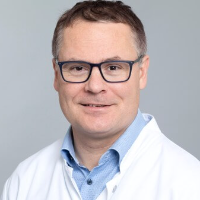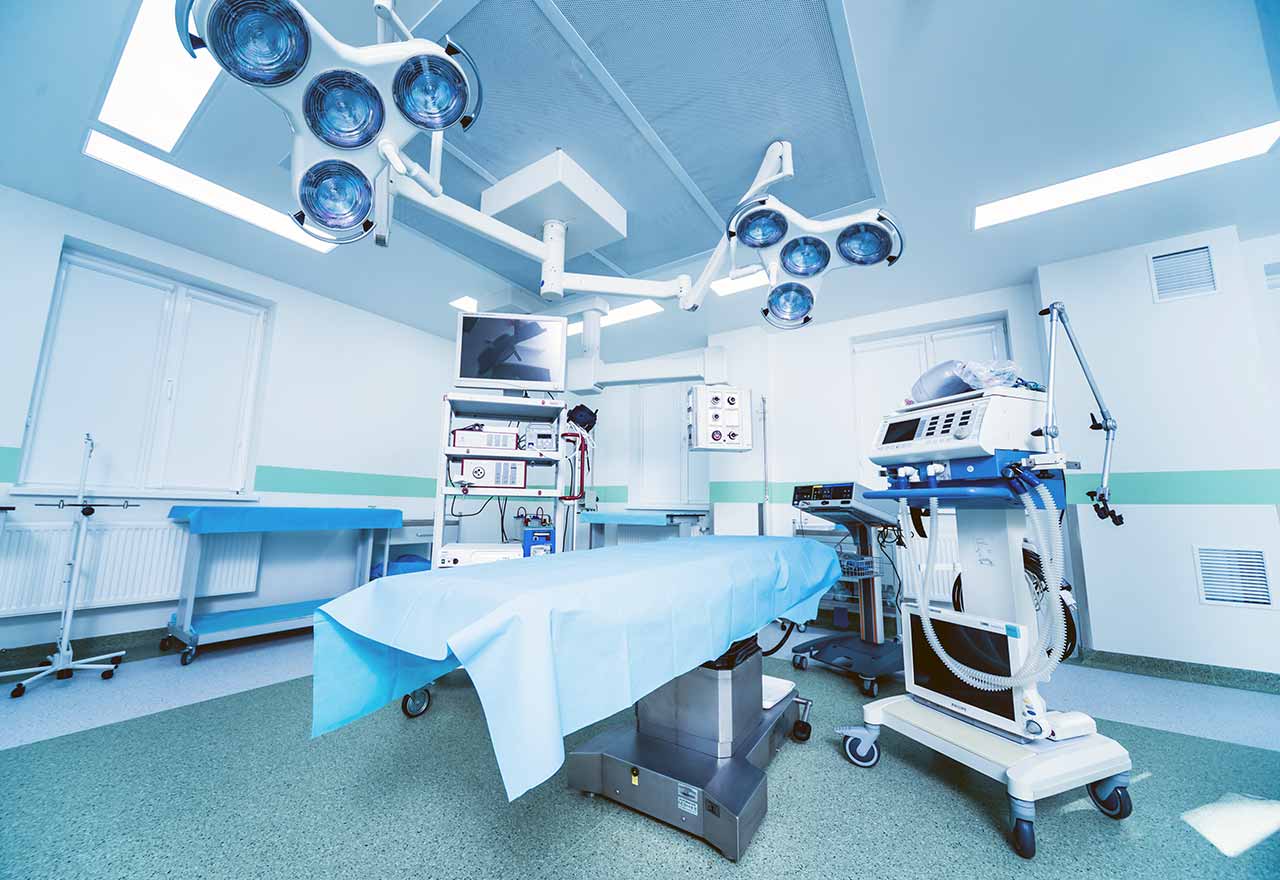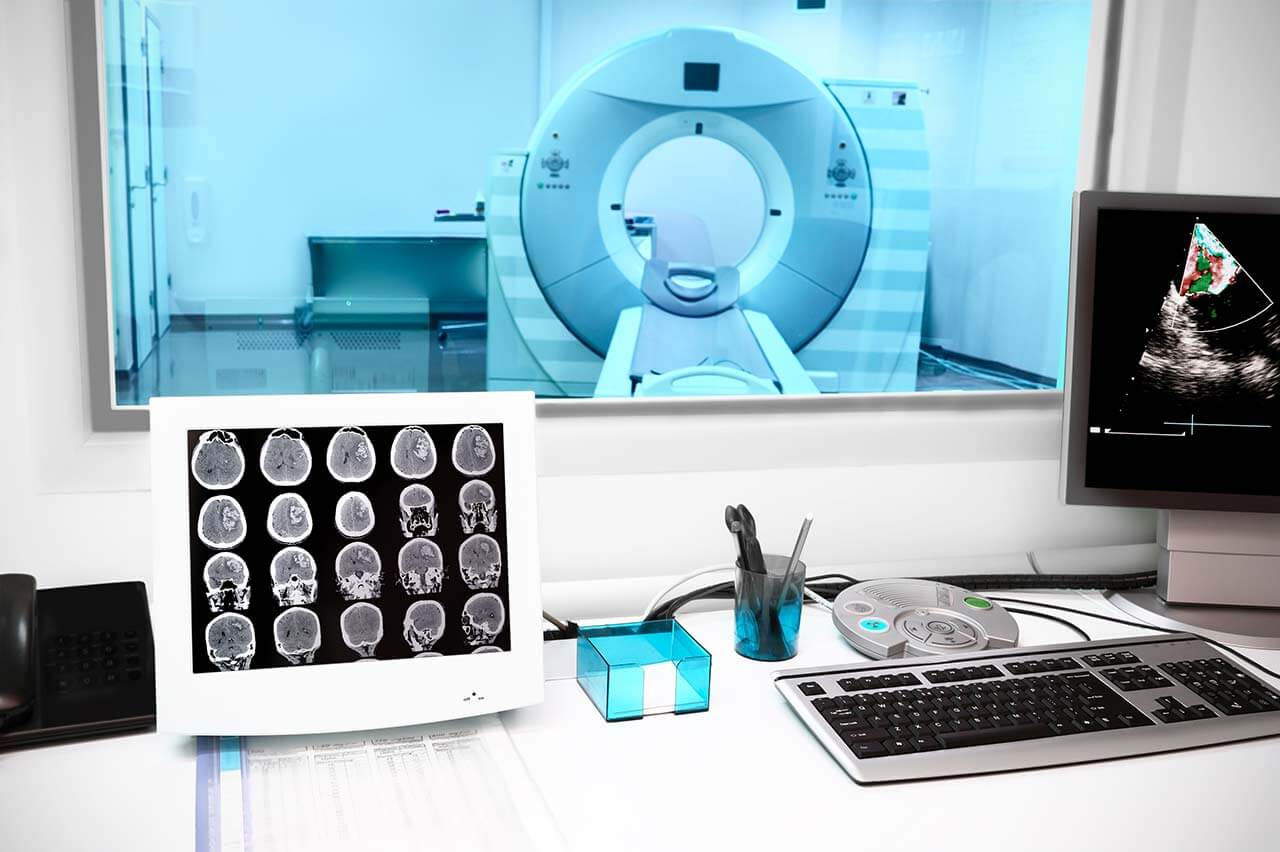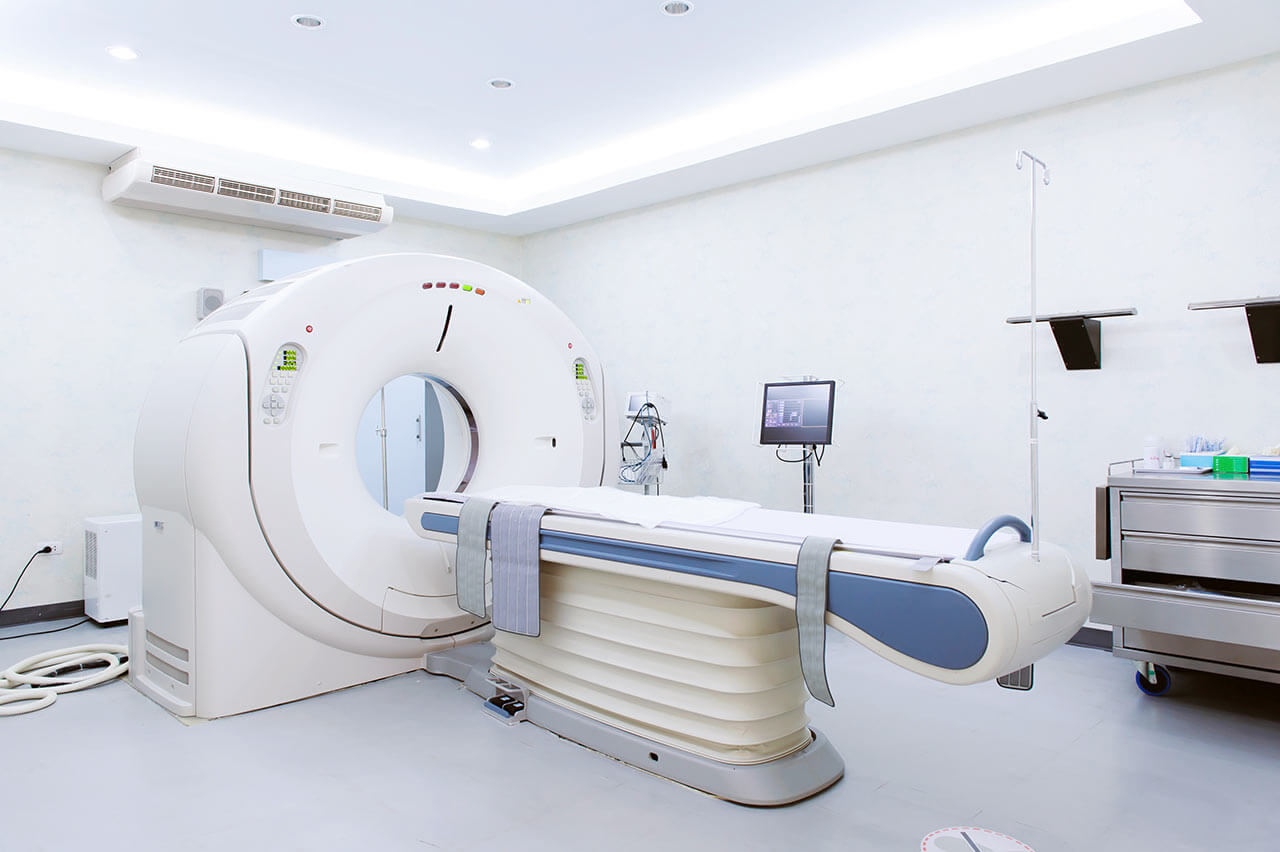
The program includes:
- Initial presentation in the clinic
- clinical history taking
- review of medical records
- physical examination
- ophthalmologic examination:
- slit lamp examination
- pupil examination
- ocular motility examination
- ophthalmoscopy
- perimetry (visual field test)
- computer perimetry
- visometry (without correction and with correction)
- keratometry
- pachymetry
- refractometry (objective, subjective, cycloplegic)
- autorefractometry
- non-contact tonometry
- optical coherence tomography OCT (if indicated clinically)
- gonioscopy
- photokeratoscopy
- nursing services
- diagnosis by chief physician and all leading experts
- explanation of individual treatment plan
Required documents
- Medical records
Service
You may also book:
 BookingHealth Price from:
BookingHealth Price from:
About the department
The Department of Adult and Pediatric Ophthalmology at the University Hospital Hamburg-Eppendorf specializes in the diagnosis and treatment of eye diseases. The department provides qualified medical care to patients of all ages, from newborns and adolescents to elderly patients with severe visual impairment. The department's ophthalmology team focuses on patients with glaucoma, cataracts, retinal, corneal, and vitreous disorders. Emergency care is also available for patients with eye injuries. Treatment is provided on both an inpatient and outpatient basis. There are 65 inpatient beds. The department performs over 7,000 surgical procedures of varying complexity annually, more than 1,400 of which are for cataracts and about 1,000 for glaucoma. The department has an inhouse Eye Bank, so corneal transplantation is a clinical priority, with over 100 transplants performed each year. In addition, the department offers excellent laser services for the treatment of eye diseases. In total, more than 6,000 inpatients are treated here each year, and another 25,000 patients receive medical care on an outpatient basis. State-of-the-art equipment, modern infrastructure, and exceptional professionalism of the doctors contribute to the excellent reputation of the medical facility in Germany and abroad. The department is headed by Prof. Dr. med. Martin Spitzer.
Most patients come to the department because of cataracts. This disease causes partial or complete clouding of the lens, which reduces visual acuity. Cataracts mostly develop due to age-related changes: the lens becomes less flexible, less transparent, and denser. The only effective treatment for cataracts is surgery, called phacoemulsification. The surgery is performed on an outpatient basis under drip anesthesia; in complex clinical situations, local anesthesia may be required. The surgery takes 15-30 minutes. During the surgery, the ophthalmologist removes the patient's lens and implants an intraocular lens in its place: monofocal, multifocal, toric, or multifocal toric, depending on the specific clinical case. All manipulations are performed under a surgical microscope through tiny incisions (about 2 mm), eliminating the need for sutures. The department performs nearly 1,500 cataract surgeries per year, so it has enormous experience in this field.
The team of ophthalmologists of the department is deservedly proud of its excellent results in the treatment of glaucoma, which is characterized by irreversible damage to the optic nerve due to high intraocular pressure. The insidious nature of glaucoma is that the pathology does not cause symptoms for a long time. In the early stages, patients receive drug treatment with eye drops to lower intraocular pressure and medications to improve the outflow of fluid from the eye. The second-line treatment is laser trabeculoplasty or laser iridectomy. In complex cases, ophthalmologists of the department resort to surgical treatment with trabeculectomy, trabeculotomy, viscocanalostomy, and non-penetrating deep sclerectomy. The specialists of the medical facility perform more than 1,000 glaucoma surgeries annually with brilliant success.
The specialists of the department are distinguished by their excellent qualifications in the treatment of retinal diseases, such as retinal detachment, retinal dystrophy, retinal tears, retinitis, diabetic retinopathy, diabetic macular edema, macular dystrophy, epiretinal gliosis, and retinal hemorrhages. Depending on the diagnosis and the degree of retinal damage caused by the pathological process, ophthalmologists perform drug therapy, intravitreal anti-VEGF injections, laser coagulation, or vitrectomy. The doctors of the department also consult patients with rare and hereditary retinal diseases, including inherited retinal dystrophies, syndromic pathologies with retinal damage, and hereditary optic neuropathies.
The range of medical services provided by the department includes the following options:
- Diagnostics and treatment of cataracts
- Phacoemulsification with subsequent intraocular lens implantation
- Diagnostics and treatment of glaucoma
- Drug therapy
- Laser therapy: trabeculoplasty and iridectomy
- Surgical procedures: trabeculectomy, trabeculotomy, viscocanalostomy, and non-penetrating deep sclerectomy
- Diagnostics and treatment of retinal diseases
- Drug therapy
- Intravitreal anti-VEGF injections
- Laser coagulation
- Vitrectomy
- Diagnostics and treatment of strabismus in adults and children
- Diagnostics and treatment of eye movement disorders
- Diagnostics and treatment of eye tumors
- Diagnostics and treatment of rare ophthalmological diseases
- Diagnostics and treatment of other ophthalmological diseases
Curriculum vitae
Higher Education and Postgraduate Training
- Since 2016 Professorship for Ophthalmology, University of Hamburg.
- 2012 Extraordinary Professorship, Department of Ophthalmology, University Hospital Tuebingen.
- 2010 Habilitation in Ophthalmology, University of Tuebingen.
- 2008 Board certification in Ophthalmology, Germany.
- 2008 Diploma of the European Board of Ophthalmology (EBO), Fellow of the European Board of Ophthalmology (FEBO).
- 2006 United States Medical Licensing Examination (USMLE), Step 3.
- 2004 Thesis defense, Institute of Pathology, Technical University of Munich.
- 2003 ECFMG Certificate, USMLE, Step 1 (258/99), Step 2 (252/99), and Clinical Skill Assessment.
- 1996 - 2003 Medical studies, Technical University of Munich and University of Regensburg; multiple internships in the USA and UK.
Medical Practice
- Since 11.2016 Head Physician, Department of Adult and Pediatric Ophthalmology, University Hospital Hamburg-Eppendorf.
- 01.2013 - 10.2016 Deputy Head Physician, Department of Ophthalmology, University Hospital Tuebingen.
- 01.2010 - 12.2012 Senior Physician, Department of Ophthalmology, University Hospital Tuebingen.
- 2009 Physician and Research Group Leader, Department of Ophthalmology, University Hospital Tuebingen.
- 2003 - 2008 Residency, Department of Ophthalmology, University Hospital Tuebingen.
Photo of the doctor: (c) Universitätsklinikum Hamburg-Eppendorf (UKE)
About hospital
According to the Focus magazine, the University Hospital Hamburg-Eppendorf is one of the top ten hospitals in Germany!
Since its foundation in 1889, the hospital has taken a leading position in the European medical arena, which it still holds today. A highly competent medical team of more than 15,300 employees takes care of the health of patients. Approximately 2,900 of them are physicians and researchers, and more than 3,400 work as nurses and therapists. The hospital has 1,738 beds for inpatient treatment, and many diagnostic and therapeutic services are provided on an outpatient basis. A solid foundation for successful clinical practice in the medical complex is formed by a combination of research achievements with state-of-the-art equipment and the highest professionalism of doctors. In addition, the hospital has a modern and extremely comfortable infrastructure. The most important value for every employee of the University Hospital Hamburg-Eppendorf is the health and well-being of every patient.
The medical facility was the first university hospital in Europe to implement an electronic system for storing patient medical reports. As a result, all diagnostic and treatment protocols are stored electronically. In 2011, the hospital was certified as the first fully digital hospital in Europe.
The hospital represents all areas of modern medicine. The doctors of the healthcare facility have a wealth of theoretical knowledge and vast clinical experience, which allows them to easily cope with the treatment of both common and extremely rare, complex clinical cases. About 550,000 patients are treated here each year, over 450,000 of whom receive outpatient medical care.
An important part of the work of the University Hospital Hamburg-Eppendorf is research activities aimed at developing innovative diagnostic and treatment methods. The main areas of research of the hospital include neurobiology, oncology, cardiovascular research, and research on infectious and inflammatory diseases. Special attention is also given to research in molecular imaging and skeletal biology.
The hospital is distinguished by its first-class level of medical care, which is confirmed by numerous quality certificates of European and international standards: DIN EN IS0 9001 certificate, certificates of the German Cancer Society (DKG) in the treatment of breast cancer, colon cancer, gynecological cancer, prostate cancer, and other oncological diseases, certificate of the German Cardiac Society (DGK) in the treatment of acute coronary syndrome, certificate of the German Spine Society (DWG), and others.
Photo: (с) depositphotos
Accommodation in hospital
Patients rooms
The patients of the University Hospital Hamburg-Eppendorf stay in comfortable single and double bright rooms with a modern design. Each patient room has an ensuite bathroom with a shower and a toilet. The standard patient room furnishings include an automatically adjustable bed with an orthopedic mattress, a bedside table, a wardrobe, a table and chairs for receiving visitors, a telephone, a radio, and a TV. Wi-Fi access is available in patient rooms and throughout the hospital.
If desired, patients can stay in single enhanced-comfort rooms. These rooms are more spacious and are equipped with upholstered furniture, a safe, and a mini-fridge.
Meals and Menus
The hospital offers three meals a day: breakfast, lunch, and dinner. Breakfast and dinner are served in the form of buffets, and for lunch you can choose from several set menus – in total, more than 20 dishes are served for lunch, including vegetarian ones.
If, for some reason, you cannot eat all of the foods, you will be offered an individual menu. Please inform the medical staff about your dietary preferences prior to the treatment.
Further details
Standard rooms include:
![]() Toilet
Toilet
![]() Shower
Shower
![]() Wi-Fi
Wi-Fi
![]() TV
TV
Religion
Religious services are available upon request.
Accompanying person
During the inpatient program, an accompanying person may stay with you in a patient room or hotel of your choice.
Hospital accommodation
During the outpatient program, you may stay in a hotel at the hospital.
Hotel
During the outpatient program, you may stay in a hotel of your choice. Managers will help you choose the most suitable options.
The hospital offers a full range of laboratory tests (general, hormonal, tests for infections, antibodies, tumor markers, etc.), genetic tests, various modifications of ultrasound scans, CT scans, MRI and PET / CT, angiography, myelography, biopsy and other examinations. Treatment with medications, endoscopic and robotic operations, stereotaxic interventions is carried out here, modern types of radiation therapy are also used. The hospital offers patients all the necessary therapeutic techniques.
- Coiling and clipping of aneurysms of different localizations
- Transjugular intrahepatic portosystemic shunting in patients with portal hypertension
- Minimally invasive surgeries (da Vinci)
- Removal and reconstruction of mammary glands
- Hyperthermic intraperitoneal chemotherapy (HIPEC)
These are arteriovenous malformations and angiomas, vascular aneurysms, pathologies of the mammary glands, pelvic organ prolapse, urinary incontinence, malignant tumors of various localizations (area of special attention is treatment of intestinal cancer), pathologies of liver and pancreas, cataracts and rare ophthalmic pathologies (aphakia, aniridia ), infertility and other diseases.
- Interventional neuroradiology
- Mammology
- Oncology
- Gastroenterology
- Surgery
Over 2,900 highly qualified physicians and researchers work at the hospital.





